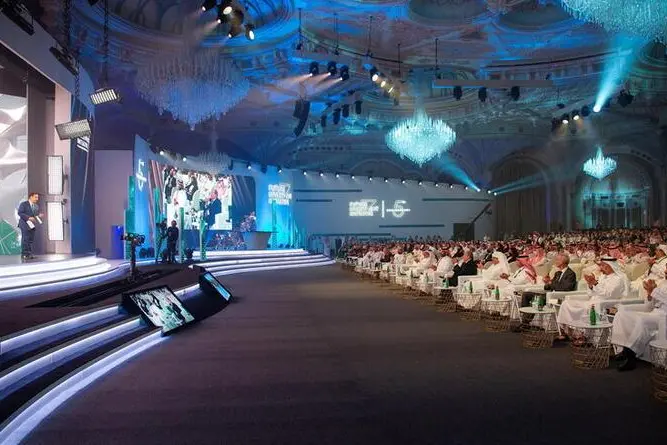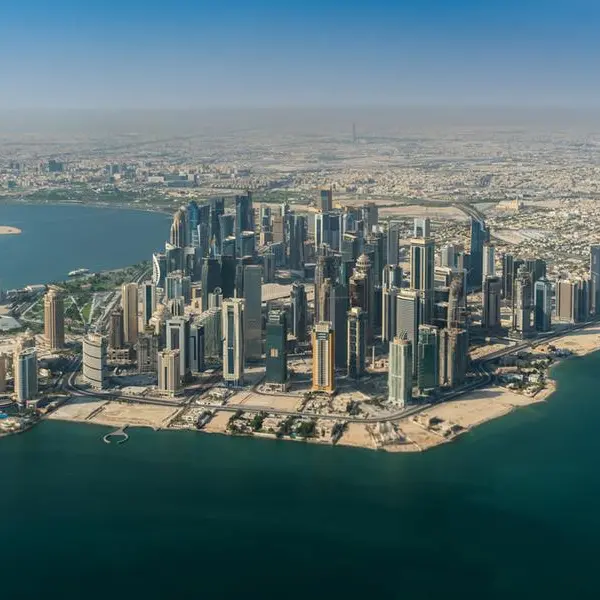PHOTO
Saudi Arabia has witnessed unprecedented momentum that has awakened a long-overdue reckoning around structural reforms, energy transformation, economic diversification and increased private sector-led enterprise creation.
With a strong political will for reforms, innovation and entrepreneurship have emerged as key pillars of the Kingdom’s Vision 2030. Yet it is the Kingdom’s commitment to sustainability and technological innovation — such as cleantech and climate tech — and its landmark pledge to reach net-zero emissions by 2060 that is a real game-changer and that has made the country a leading role model for all major oil-producing economies.
The year 2021 has seen many landmark developments for Saudi Arabia’s cleantech sector. These include the world’s largest green hydrogen plant; Saudi Aramco’s corporate venture capital arm’s new $500 million fund to invest in energy efficiency and renewable energy solutions, as well as new oil and gas technologies; and Saudi Arabia’s pledge to reach net-zero greenhouse gas emissions by 2060 to curb manmade climate change.
Such developments are evidence of the strong political will demonstrated by Saudi leaders to scale up their environmental protection and climate action by increasing the Kingdom’s reliance on clean energy and offsetting the impact of fossil fuels. It is also this vision from the Kingdom’s crown prince that has led the market to predict that Saudi Arabia may well be on the brink of a cleantech revolution.
Projects such as the Al-Khafji desalination plant, the world’s first solar-powered large-scale desalination plant located in northeastern Saudi Arabia and the King Abdullah City for Atomic and Renewable Energy, which aims to create 41 GW of solar energy, send a clear message about the government’s resolve to go much further and faster in combatting climate change and supporting environmentally friendly innovation.
Undeniably, the Gulf Cooperation Council faces daunting environmental challenges, but Crown Prince Mohammed bin Salman’s pledge to achieve net carbon neutrality by 2060 clearly reveals that Saudi Arabia has risen to the challenge of combating climate change. Yet the government cannot be alone in this mission. Private enterprises and young entrepreneurs must jointly and individually contribute to this effort. Fortunately, we are already witnessing how a young and growing movement around cleantech and climate tech innovation is driving entrepreneurs in Saudi Arabia to create sustainable solutions.
The Kingdom is currently incubating its first generation of cleantech entrepreneurs, who are pioneering sustainable change in the region. For example, Red Sea Farms, an initiative backed by the Future Investment Initiative Institute, has risen to the challenge of building saltwater greenhouses to offer products and services designed to help farmers grow food sustainably using fewer resources in water-scarce areas.
If Saudi Arabia’s cleantech entrepreneurship ecosystem accelerates sufficiently, those startups could provide innovative environmental solutions adapted to a local context, maximizing the Kingdom’s capacity for sustainability and creating jobs that contribute to a domestic knowledge-based economy.
Economic diversification is already underway. In this context, the creation of a cleantech ecosystem is a key part of the Kingdom’s Vision 2030 Quality of Life Program. Cleantech innovation, startups and a knowledge-based economy will play a significant role in the crown prince’s vision to transform the economy away from its traditional oil-based structure and re-balance it into a more technology-driven modern global superpower.
This is a crucial step forward for a country that has an estimated 2.2 million men and women aged between 15 and 19 and who will be entering the job market over the next decade, and a huge opportunity for the Kingdom’s nearly 20 million young men and women under the age of 35.
The government has shown its clear intent to support cleantech innovation and create a sustainable ecosystem by launching the Saudi Green Initiative and has reinforced its plans by announcing the issuance of green debt by its Public Investment Fund, the world’s first sovereign wealth fund to announce a green issuance.
Yet the development of a robust cleantech ecosystem is a long-term endeavor in need of a robust regulatory framework, public/private sector commitment, and predictable implementation.
Saudi Arabia is sending a strong message to the world that a sustainable and clean economy is the way forward. The theme of this year’s FII Summit, underway in Riyadh, perfectly summarizes the spirit that is sweeping through Saudi Arabia today: “Invest in Humanity.” The high-profile event, now supported by the FII Institute as a global nonprofit foundation with an investment arm and an agenda, is a testament to the evolving leadership of the Kingdom on the world stage and its growing appeal to global leaders, investors, and innovators. It is a philosophy that signals the Kingdom’s will to take on the future.
What is certain to the foreign observer peering into the Kingdom is the country’s potential to transform itself from the largest exporter of petroleum in the world to a leading champion of sustainability.
• Roxana Mohammadian-Molina is chief strategy officer and board member at London-based fintech company Blend Network. She is a strategic adviser and non-executive director.
Twitter: @Roxana_M_Molina
Copyright: Arab News © 2021 All rights reserved. Provided by SyndiGate Media Inc. (Syndigate.info).





















